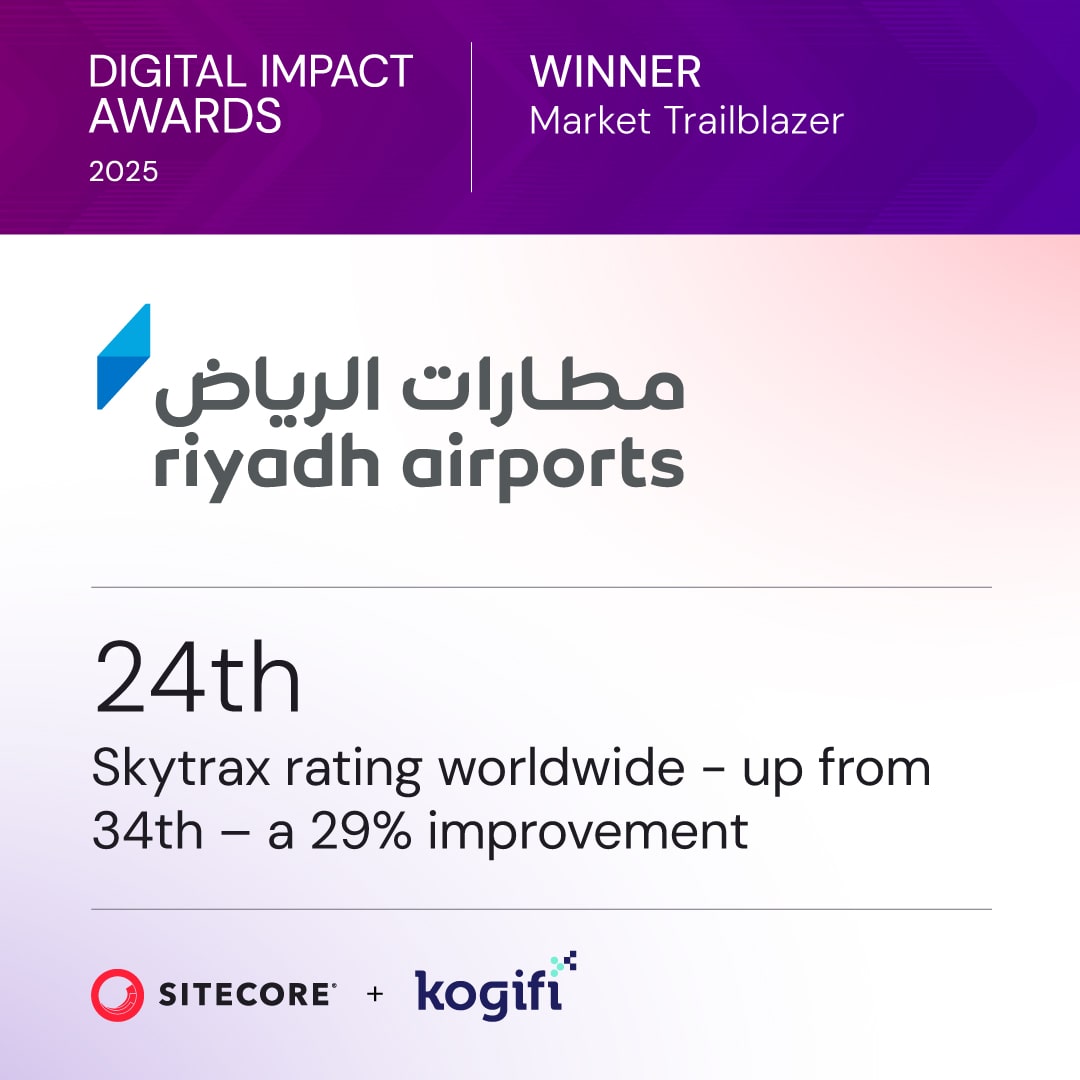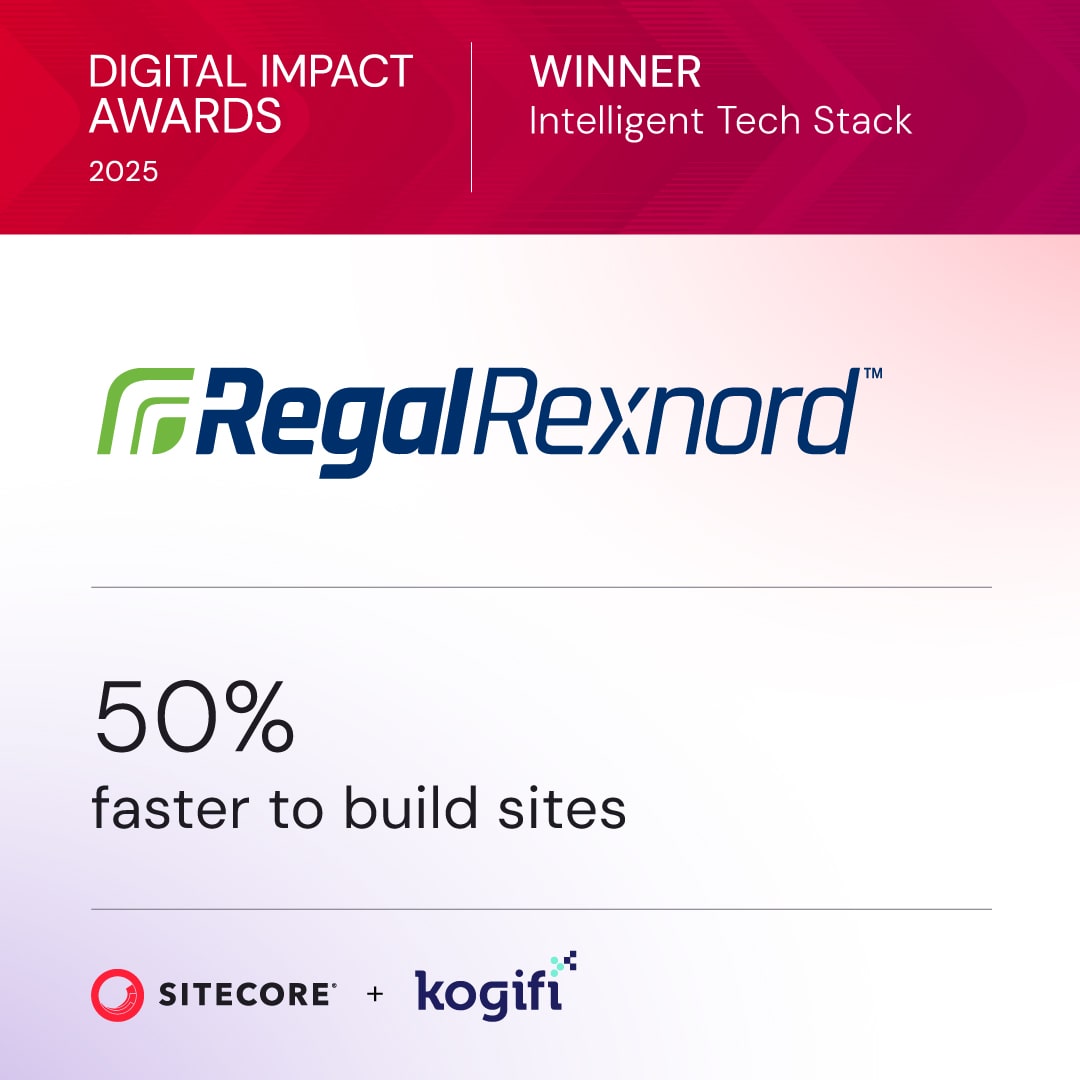Which platform is right for you?
If you’re deciding between Sitecore CDP+Personalize and Google Analytics 4 (GA4), here’s the quick answer:
- Sitecore CDP+Personalize is best for businesses focused on real-time personalization, unified customer data, and creating tailored experiences across multiple channels.
- Google Analytics 4 is ideal for tracking website and app performance, analyzing user behavior, and leveraging event-based analytics.
Quick Comparison
| Feature | Sitecore CDP+Personalize | Google Analytics 4 |
|---|---|---|
| Primary Function | Unifies customer data for personalization | Tracks events and analyzes behavior |
| Data Handling | Integrates first-party data from multiple sources | Focuses on web and app metrics |
| Personalization | Advanced, real-time personalization | Basic segmentation |
| Analytics Approach | Omnichannel optimization | Event-based tracking |
| Pricing | Custom pricing, enterprise-focused | Free (GA4) or $150,000+/year (GA360) |
Both platforms are powerful but serve different goals. If your focus is personalization and customer engagement, Sitecore is the better fit. For basic analytics and cost-effective tracking, GA4 is a solid choice.
1. Sitecore CDP+Personalize Features

Platform Purpose
Sitecore CDP+Personalize is designed to deliver tailored customer experiences. With nearly half of marketers (50%) struggling to build meaningful connections with their audience, this platform steps in by blending powerful data management tools with advanced personalization capabilities.
Data Collection and User Tracking
The platform employs cutting-edge methods to gather and track user data across three main channels:
| Data Ingestion Method | Capability | Use Case |
|---|---|---|
| Stream APIs | Captures data in real time | Tracks live user interactions and behaviors |
| Batch APIs | Imports historical data | Processes past customer interactions and records |
| Interactive APIs | Provides on-demand access | Retrieves contextual information as needed |
It also retains anonymous visitor data for up to six months, enabling consistent personalization efforts even before users are identified. The system builds comprehensive visitor profiles, accommodating both identified users (with PII) and anonymous visitors.
Reporting and Experience Optimization
Sitecore CDP+Personalize delivers measurable improvements in performance. As Director Daulton Allison puts it:
"If you're looking to improve your website's performance, optimize your user experience, and create a personalized customer experience across multiple channels and touchpoints, Sitecore CDP & Personalize is the way to go."
Here’s a snapshot of the platform’s impact:
| Metric | Improvement |
|---|---|
| Revenue Increase | 30% |
| Booking Rates | 20% |
| Customer Retention | 25% |
| Click-Through Rate | 30% |
These results highlight how Sitecore CDP+Personalize unifies data and refines user experiences.
Connected Systems
The platform excels at identity resolution, automatically recognizing returning users. This ensures unified profiles are updated in real time, creating a seamless, personalized experience.
Pricing and Growth Options
Sitecore provides two adaptable implementation options to meet diverse organizational needs:
Full CDP Implementation:
- Advanced data ingestion tools
- Segmentation capabilities
- Audience synchronization
- Access to a data lake
- Comprehensive analytics suite
Starter Package with Sitecore Personalize:
- Core CDP functionalities
- Personalization tools
- Demonstrated ROI
- Scalable options for future growth
For example, WellSpan Health integrated Sitecore Personalize with Sitecore XM and saw a 20% boost in new user accounts. This also improved patient engagement through personalized interactions.
2. Google Analytics Features
Platform Purpose
While Sitecore CDP+Personalize focuses on unifying varied data for real-time personalization, Google Analytics 4 (GA4) is all about event-driven analysis. GA4 shifts away from traditional session-based tracking and adopts an event-based model to provide deeper insights into how users interact with digital platforms.
Data Collection and User Tracking
GA4 employs advanced tracking techniques while keeping user privacy front and center. Using first-party cookies, it tracks data and user sessions, assigning unique, anonymous IDs to each visitor.
| Tracking Feature | Capability | Business Impact |
|---|---|---|
| Enhanced Measurement | Automatic event tracking | Simplifies setup and captures broader data |
| Cross-Domain Tracking | Unified user journey analysis | Smooth tracking across multiple domains |
| Predictive Analytics | Machine learning-powered insights | Helps forecast user behavior and outcomes |
| Privacy Controls | Cookieless measurement | Ensures compliance with privacy regulations |
With these tools in place, GA4 enables businesses to collect robust data and turn it into meaningful insights.
Reporting and Experience Optimization
GA4 offers customizable exploration tools that make sense of raw data, turning it into actionable insights.
"Analytics 360 is tailored for the unique measurement needs of large enterprises with advanced customization, scalable tools, and enterprise-level support." - Google Marketing Platform
Here’s a comparison of key reporting features between the free GA4 and the premium GA360:
| Feature | Free GA4 | GA360 |
|---|---|---|
| Data Retention | Up to 14 months | Up to 50 months |
| Event Parameters | 25 per event | 100 per event |
| Custom Dimensions | 50 per property | 125 per property |
| BigQuery Exports | 1M events daily | Billions of events |
These features empower businesses to refine user experiences and optimize their strategies.
Connected Systems
GA4 integrates seamlessly with various tools and platforms, extending its functionality:
- Marketing Platforms: Direct connections with advertising tools allow for detailed campaign tracking.
- Data Analysis Tools: Integration with BigQuery enables enterprises to process massive datasets efficiently.
- Testing and Optimization: Google Optimize integration supports A/B testing and personalization efforts.
These integrations make GA4 a versatile tool for businesses of all sizes.
Pricing and Growth Options
GA4 is available in two tiers:
| Feature | Google Analytics 4 (Free) | Google Analytics 360 |
|---|---|---|
| Cost | Free | Starting at $150,000/year |
| Data Freshness | 24-48 hours | Near real-time |
| Support Level | Community support | Dedicated account support |
| Audiences | 100 | 400 |
"Google Analytics 360 has given us more transparency into our data. We're now connecting information about our digital touch points and sharing these customer insights across our entire company." - Martijn van der Zee, Chief Digital Officer, Rituals
GA4’s flexible pricing and robust features make it a go-to analytics platform for businesses aiming to scale their digital strategies effectively.
sbb-itb-91124b2
Platform Strengths and Limitations
Understanding the strengths and limitations of each platform is crucial for making informed enterprise decisions. Here's a breakdown of how these platforms perform across essential enterprise needs.
Data Processing and Integration Capabilities
When it comes to handling and integrating data, the two platforms take different approaches:
| Capability | Sitecore CDP+Personalize | Google Analytics 4 |
|---|---|---|
| Data Processing Speed | Processes and activates data in real-time | 24–48-hour delay when integrated with BigQuery |
| Data Volume Handling | Designed to manage enterprise-scale data volumes | Limited to 1M events/day with BigQuery integration |
| Data Integration | Combines online and offline data sources seamlessly | Primarily focused on web and app analytics |
| Customer Profile Management | Offers a unified view of customers | Relies on event tracking for insights |
Core Platform Advantages
Beyond data processing, each platform offers unique features that set them apart:
| Feature Area | Sitecore CDP+Personalize | Google Analytics 4 |
|---|---|---|
| Personalization Depth | Utilizes AI for multi-channel personalization | Standard segmentation tools |
| Testing Capabilities | Supports advanced multivariate testing | Limited A/B testing via Google Optimize |
| Security & Compliance | Built-in tools for privacy regulation compliance | Meets basic privacy requirements |
| AI Implementation | Includes native AI tools for actionable customer insights | Uses machine learning for predictive analytics |
Scalability Considerations
Scalability is an area where the platforms diverge significantly, depending on enterprise needs:
| Aspect | Sitecore CDP+Personalize | Google Analytics 4 |
|---|---|---|
| Infrastructure Flexibility | Adapts to evolving enterprise demands | Relies on external solutions for large-scale operations |
| Multi-site Management | Simplifies cross-channel management | Requires complex GTM configurations |
| Data Transformation | Features built-in data harmonization | Requires additional processing in BigQuery |
These differences highlight how each platform aligns with specific scalability requirements.
Real-world Performance Impact
The technical capabilities of these platforms directly affect business outcomes:
| Business Need | Sitecore CDP+Personalize | Google Analytics 4 |
|---|---|---|
| Customer Experience | Enables consistent omnichannel personalization | Geared toward website optimization |
| Marketing Efficiency | Provides a marketer-friendly, unified platform | Requires integration with multiple tools |
| Enterprise Integration | Supports diverse enterprise ecosystems | Primarily works within the Google ecosystem |
Ultimately, the right choice depends on whether your organization prioritizes unified data management, deep personalization, or scalability to meet its goals.
Summary and Recommendations
Looking at both platforms side by side makes it easier to see which one aligns with specific enterprise needs.
Enterprise Use Case Recommendations
| Business Need | Recommended Platform | Key Advantages |
|---|---|---|
| Real-time Personalization | Sitecore CDP+Personalize | Immediate data activation, contextual experiences, unified customer profiles |
| Basic Web Analytics | Google Analytics | Visitor demographics, site interaction tracking, standard reporting |
| High-value Transactions | Sitecore CDP+Personalize | Single customer view, sales team enablement, integrated CRM data |
| Multi-channel Marketing | Sitecore CDP+Personalize | Seamless data integration from CRM, POS, and ERP systems |
| Cost-effective Analytics | Google Analytics | Free tier available, standard website metrics, basic segmentation |
While these recommendations focus on specific use cases, choosing the right platform often depends on additional factors.
Key Decision Factors
When deciding between these platforms, here are some critical points to keep in mind:
Data Accuracy and Collection
- Sitecore CDP collects complete datasets, while Google Analytics relies on sampling in its standard version.
- Consistent tag implementation is essential to ensure accurate data collection.
Customer Profiling Capabilities
- Sitecore tracks individual visitors for detailed customer profiles, enabling personalized experiences.
- Google Analytics focuses on aggregate data analysis, offering insights into overall visitor behavior.
"GA gives you great information about your visitors, who they are, and how they interact with your site while Sitecore allows you to act on that data and produce unique contextual experiences for your users." - Suset Acosta, Oshyn
Implementation Considerations
The rollout process also plays a big role in determining the best platform for your business.
Optimal Platform Selection
- If personalization and enhancing customer experiences are top priorities, Sitecore CDP+Personalize is the better fit.
- For businesses needing basic web analytics and standard reporting, Google Analytics is a solid choice.
- Large enterprises can benefit from combining both platforms to take advantage of their complementary strengths.
Data Integration Strategy
- Use Sitecore xConnect to integrate data seamlessly and maintain a dynamic 360° customer view.
- Weigh the benefits of having unified customer profiles against the insights offered by aggregated analytics to make the right choice.
Ultimately, if your focus is on advanced personalization, Sitecore CDP+Personalize is the way to go. For basic analytics needs, Google Analytics offers a practical solution. The decision depends on your business goals and available resources.
FAQs
How do Sitecore CDP+Personalize and Google Analytics 4 differ in data management and personalization?
Sitecore CDP+Personalize and Google Analytics 4 (GA4) cater to distinct needs, particularly in data management and personalization. Sitecore CDP+Personalize focuses on creating a unified view of each customer by combining data from various sources. This allows for real-time personalization and detailed segmentation, enabling businesses to design marketing campaigns that truly resonate with individual preferences. Its strength lies in delivering consistent and tailored experiences across all customer interactions.
GA4, on the other hand, is built for website and app analytics. It specializes in tracking traffic, user behavior, and conversions, offering valuable insights at an aggregate level. However, GA4 doesn’t provide the tools to build detailed customer profiles or achieve the same depth of personalization that Sitecore offers. With features like the Experience Database (xDB), Sitecore goes a step further by tracking and responding to individual customer journeys, making it a go-to solution for businesses aiming to prioritize personalized digital experiences.
How does Sitecore CDP+Personalize improve customer engagement and deliver more personalized experiences compared to traditional analytics tools?
How Sitecore CDP+Personalize Boosts Customer Engagement
Sitecore CDP+Personalize brings customer engagement to a whole new level by merging all customer interactions and profile data into a single customer view. This unified approach helps businesses understand each customer’s journey more clearly, paving the way for experiences that feel personal and relevant.
What sets Sitecore apart from traditional analytics tools is its ability to go beyond basic metrics. With features like Engagement Value, it measures how users interact with your content, while pattern matching helps identify visitor profiles. These tools let businesses create tailored content, automate marketing campaigns, and respond to customer actions instantly.
On top of that, Sitecore integrates seamlessly with third-party tools like CRMs, ensuring you have a complete picture of your audience. This makes it easier to craft digital experiences that genuinely connect with customers.
What should businesses consider when deciding between Sitecore CDP+Personalize and Google Analytics 4 for analytics and personalization?
When comparing Sitecore CDP+Personalize with Google Analytics 4 (GA4), it’s essential to consider what your business aims to achieve. Sitecore CDP+Personalize stands out for its ability to manage customer data and deliver tailored experiences. By providing a unified view of individual customer journeys, it uses enriched data, machine learning, and predictive analytics to craft highly customized digital interactions.
Meanwhile, GA4 specializes in website and app analytics, focusing on user behavior, top-performing pages, and engagement trends. While its reporting capabilities are robust for analyzing audience behavior, it doesn’t offer the in-depth customer profiling that Sitecore provides. If your goal is to understand individual customer journeys and implement advanced personalization, Sitecore could be the stronger choice. On the other hand, GA4 is well-suited for businesses prioritizing broader audience insights and performance tracking.
For many businesses, combining the strengths of both platforms can be a smart strategy. Using them together allows you to gain comprehensive insights while enhancing digital experiences across the board.








































